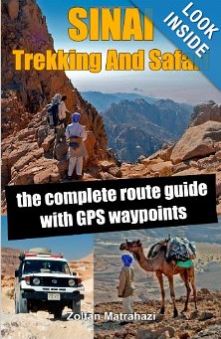
Egypt During Ramadan
Ramadan is the highlight of the Islamic calendar, a month long festival characterised by both great restraint and great indulgence. If you’re lucky enough to travel in Egypt during Ramadan, you’re likely to see Egyptians at their most generous. The customary greeting to be recited wherever possible is ‘Ramadan Karim’ – have a generous Ramadan.
When is Ramadan in Egypt?
The 9th month of the Islamic Calendar, Ramadan commemorates the time of year when Allah (Arabic for ‘God’) first began revealing passages of the holy Koran (the Islamic Holy Book) to the profit Mohammed. As the Islamic calendar is dictated by lunar events, the fall of Ramadan changes each year. For the latest dates see the Ramadan widget above.
What is Ramadan?
During the month of Ramadan, Muslims refrain from eating, drinking, smoking and sexual activity between sunrise and sunset every day. Depending on the individual, strict observers will refuse even to swallow their own saliva.
As sunset is called by the Mosques who are in turn notified by Mecca (the Saudi Arabian centre of the Muslim world), observers join with the families to break the fast with gigantic feasts called ‘Iftar’. The first item traditionally consumed being dates.
To ensure energy levels are maintained throughout the day, Muslims will also rise early before sunrise to once again fuel their bodies with food before the fasting begins. The end of the month is commemorated with a three day festival called ‘Eid ul-Fitr’.
Implications for Travel
Many guidebooks will tell you to avoid this period and indeed there are some negative implications for travel in Egypt during Ramadan. However, if you travel primarily to experience and enjoy new cultures, then there are few more colourful and vibrant occasions to be in Egypt.
First the negative, historic sites may close earlier and restaurants outside of tourist resorts may open only late in the evening or not at all. Alcohol is significantly harder to come by but by no means impossible (the major hotel chains and resorts will stock up for the occasion), and transport schedules may be disrupted. It’s prudent to travel by bus in the morning as drivers will be fasting and concentration wanes in the afternoon.
That said, now the pros! Ramadan is like a month long Christmas and cities and towns are decorated accordingly for the entire period. Observers are generally in a good mood and particularly hospitable (Egyptians are some of the planet’s most hospitable people anyway!), although admittedly this diminishes towards the end of the month as the fasting takes its toll.
Every evening at sunset a feast known as ‘Iftar’ takes place. As Ramadan is about generosity and appreciation, huge tables full of traditional Egyptian food are erected in the street. The food is funded by donations from the wealthy in aid of the poor. Music, singing and entertainment go on long into the night.
Although as a visitor you will not be expected to fast, if you make the effort to meet Egyptians there is every chance you’ll be invited to join an evening feast.
Finally, if you’re in Cairo, you’ll have the opportunity to witness the capital at its more peaceful. As the sunsets and the minarets start calling across the city, the inhabitants vacate to pray and eat with their families. Cairo is rapidly transformed into an eerie ghost town for an hour or two and visitors are treated to a rarity - a moment of peace and quiet in Africa’s largest city.
For More Information:
Introduction to Islam - Learn more about Islam
Wikipedia Guide to Eid - Learn more about the great festival in Egypt during Ramadan




